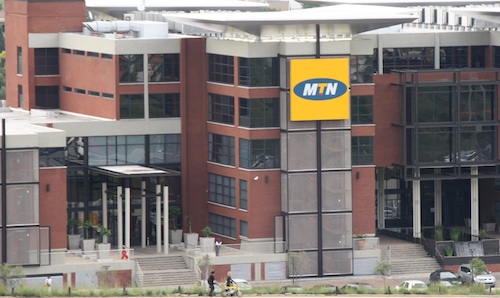
Cellular operator MTN has warned that the Independent Communications Authority of SA’s (Icasa’s) draft proposals for licensing of spectrum in high-demand spectrum bands have the “high risk” of leading to “regulatory failure”.
Efficient licensing of spectrum in the two bands in question — at 800MHz and 2,6GHz — is seen as crucial to ensuring operators are able to build next-generation wireless broadband networks and extend access outside the country’s urban centres. The bands are particularly well suited to building networks based on next-generation long-term evolution (LTE) technology.
In its submission to Icasa, MTN argues that the allocation of the spectrum is “probably the most important public policy decision and implementation of such policy in the sector since the liberalisation of the licensing regime”.
“Getting it right will mean the creation of thousands of jobs, billions of rand of growth and an increase in rural connectivity,” it says. “Of course, it means that getting it wrong will mean the opposite.”
But MTN says Icasa’s approach carries a high risk of regulatory failure for a number of reasons.
It says Icasa appears to be rewarding hoarders of spectrum with generous allocations, while preventing those who use their allocation to deliver “access for all” from bidding. “This appears to fly in the face of the ‘use-it-or-lose-it’ principle and the objectives of the [Electronic Communications] Act.”
By trying to exclude incumbent operators like MTN from participating in building networks, the proposals could also “add costs and delays to the broadband-for-all objective as new networks will need to be built from scratch”.
Icasa wants to award additional spectrum in the bands to existing licensees, including state-owned Sentech, iBurst parent Wireless Business Solutions and second national network licensee Neotel. “Some recipients may not have the cash to build [networks] in a timely manner, or at all,” MTN says. “For example, for Sentech to roll out a national network will be a significant drain on [national] treasury funds, which could be diverted elsewhere.”
The operator argues that throughout the world regulators have found it difficult to pick the likely winners correctly and the “risk of regulatory failure is therefore high with the proposed allocation method and almost half of the spectrum being allocated is ‘at the stroke of a pen'”.
It says 40% of the spectrum has already been allocated to Sentech, WBS and Neotel without regard to prior performance. This raises “serious governance issues” and means some provisions in Icasa’s invitation to apply for access to spectrum could be seen as “discriminatory”. The proposed additional allocations to the three players come with none of the roll-out obligations that will be imposed on other operators, it adds.
Neotel, it says, will be migrated to the most valuable part of the 800MHz band, with its allocation doubled and no new obligations attached. “This could mean that hundreds of millions of rand are transferred from the SA public to the Neotel shareholders.”
As a principle, spectrum should be allocated to those are most likely to make best use of it, adding that the industry fragmentation that will result from issuing new licences could increase competition but could also result in “increased unit costs and broadband prices because economies of scale are being fragmented”.
International evidence suggests such fragmentation is likely to require consolidation to create the network and economies of scale to deliver broadband to everyone, it submits. “Current spectrum trading rules would substantially hamper this process and require revisiting if the authority is to press ahead with these plans.”
MTN has also taken issue with Icasa’s proposal to enforce a wholesale-only open-access model as a licence condition, arguing this would be “globally unique” and assumes wholesale capacity is easy to deploy by new operators. It says the “jury is still out as to whether commercial, wholesale-only models (such as Russia) are even viable”.
“Recent evidence from the US, where commercial 4G wholesalers Clearwire and Lightsquared appear to be heading for bankruptcy, suggest the proposed business model is not proven at all.”
MTN says that to protect against the risk of regulatory failure, Icasa must first create “more liquid downstream markets through carefully crafted spectrum trading rules”.
“Logic and fairness dictates that such rules should be published before asking potential bidders to put a value on spectrum in an auction.”
MTN argues that Icasa’s proposal for making spectrum available is contrary to the recommendations made by the National Planning Commission in its National Development Plan, which says, among other things, that spectrum should be fully tradable once allocated” and that “spectrum policy should favour competition but incumbents should not be excluded from gaining access to bands they need to build networks using new technologies”.
Icasa’s draft documents, on the other hand, “effectively exclude MTN, Vodacom, Cell C and Telkom from direct participation to the allocation process” in the 2,6GHz band. Icasa also makes no reference to the “critical” issue of spectrum trading.
Like its rival Cell C, MTN reckons Icasa’s process, which is running parallel to a process underway at the department of communications to develop policy directions, is “procedurally unfair”. It argues that the process should be “stayed until a holistic and carefully considered national debate takes place using the policy directions process”.
Like Cell C, it argues that process will be “tainted by administrative illegality and be subject to judicial review”. It says this could be avoided if the Icasa process was put on hold to allow for “administrative action that is ‘procedurally fair’”.
Icasa is expected to hold public hearings in the next few months to hear verbal submissions from the operators and other interested industry stakeholders. — Duncan McLeod, TechCentral
- See also: Cell C skewers Icasa over spectrum plan
- Subscribe to our free daily newsletter
- Follow us on Twitter or on Google+ or on Facebook
- Visit our sister website, SportsCentral (still in beta)




